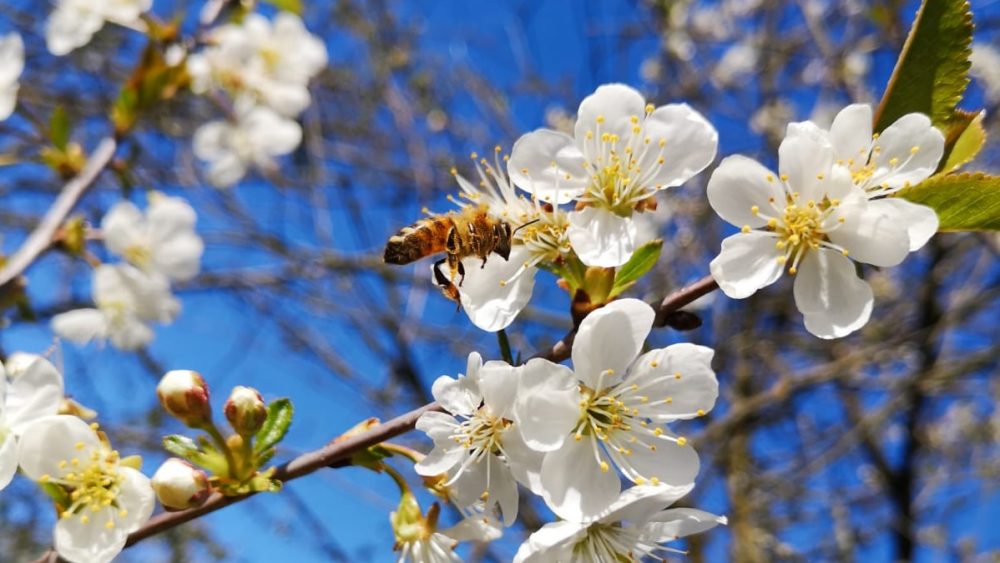This coming September Barbara Barrow and myself (Ellen Turner) will be teaching the 3-credit interdisciplinary course, Poetry, Sustainability, and Change. This course is one of the university’s so-called X-courses which are aimed at students who are already studying but wish to add a little extra to their main studies (in fact, anyone who meets the general entry and English requirements can apply). In our course, we want to move both the analytic and creative approaches to studies of poetry out of the confines English literature classroom, to those who are concerned various sustainability issues and who might not other encounter or know how to grapple with poetry.
Barbara and myself are both associate professors here at the English Unit at the Centre of Languages and Literature at Lund University. Our underlying ethos is that we, as instructors, bring the tools for analyzing and creating poetry, and the participants bring with them the themes they are interested in, along with their discipline-specific content knowledge about sustainability. We designed our course, which consists of three workshops over the course of a month, with the idea of providing an entry into how the poetry might help participants make sense of some of the topics of sustainability that they might be exploring on personal, academic, or professional levels.
Inspired by Didham (2022), who highlights poetry’s potential to reframe dominant economic narratives of growth and exploitation,[1] we aim to harness poetry’s emotional impact to transform readers into “active agents of change” in the field of sustainability. Building on Illingworth and Jack’s (2024) advocacy for using poetry across disciplines in higher education,[2] this course extends poetry’s transformative potential beyond the literature classroom, encouraging participants to “see” differently. In particular, we invite readers to decenter human perspectives through poems, thinking about the world through the eyes of snails and jellyfish, for example, or through the protestations of an overworked piece of land.
Acknowledging the fact that many of our participants will be encountering poetry in an academic context for the first time, we approach poetry from the basics with as little jargon as possible. In the first workshop, participants will be introduced to accessible tools for analyzing poetry and they will begin to see how they can apply these tools to poems on sustainability topics of their choice. For instance, someone interested in biodiversity might explore poems about bees to see how poetic perspectives enhance understanding of ecological themes. The second workshop will focus on how poetry engages emotions, encouraging both individual and collaborative responses. Here dialogue is crucial as we explore how reading as a community of readers can inform the creation of meaning and reshape perceptions of sustainability issues and challenges.
We are excited also to trial a creative component in the final workshop of the course. Lead primarily by Barbara, who is herself a novelist and short fiction writer, we have piloted scaffolded creative writing exercises on others courses that we have co-taught and often students remark in course evaluations that this was their favourite part of the course. While some students have dabbled in poetry writing before, for many this is their first attempt at writing poetry, so we want to stress that this exercise is low-stakes and we aim to create a supportive and non-judgemental environment for this to take place in. Prospective students might also be relieved to hear that we won’t be assessing their actual poetry output, but are rather concerned with the reflection that goes on around the process. How has poetry-writing helped participants to explore their sustainability themes that matter to them? The goal is that this creative immersion allows participants to deepen their understanding of these challenges through self-expression.
Our hope is that this micro-course which runs at the start of the semester throughout September, will be transformative in for participants and help them approach their studies throughout the rest of the semester with fresh eyes and poetry in their hearts and minds. The deadline for application to the course is 15 April, and more details on how to apply can be found here: https://www.sol.lu.se/en/course/ENGC18/
[1] Didham, Robert J. 2022. Poetic Learning for a Sustainable Future: Transforming our Collective Story. In Poetry and Sustainability in Education, edited by Sandra Lee Kleppe and Angela Sorby, 121-145. Palgrave Macmillan.
[2] Jack, Kirsten, and Sam Illingworth. 2024. Poetry and Pedagogy in Higher Education: A Creative Approach to Teaching, Learning and Research. Bristol University Press.

